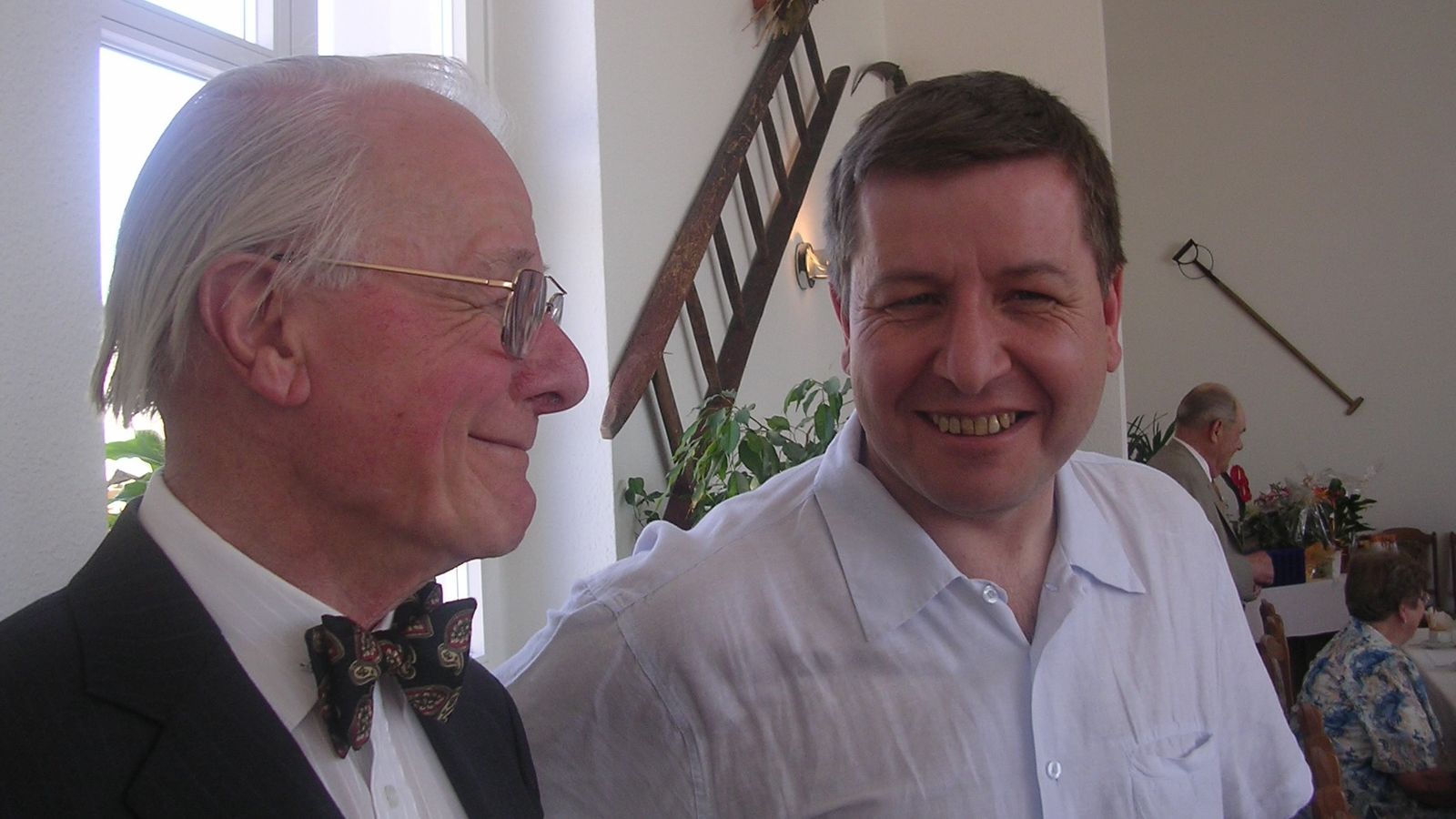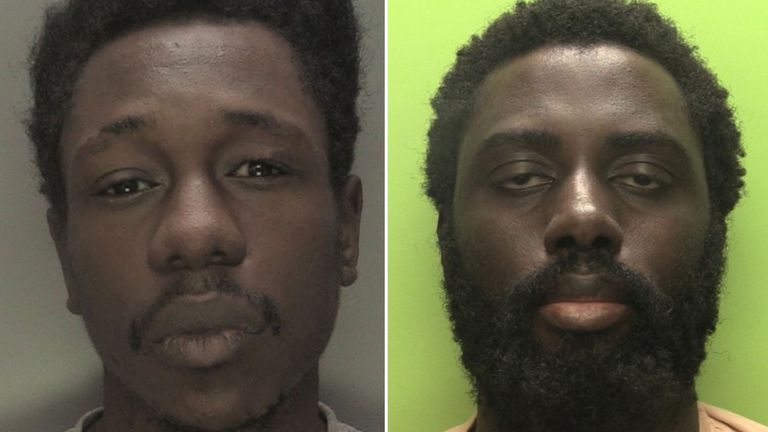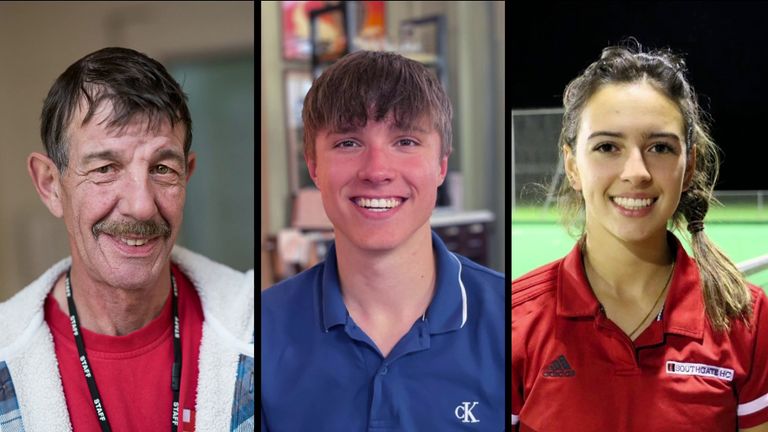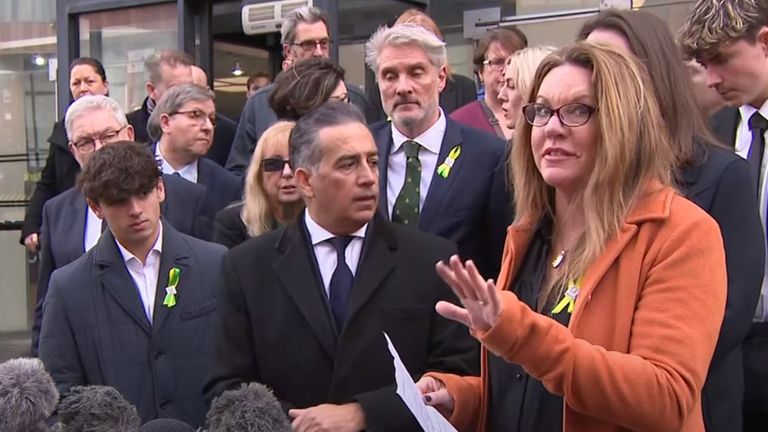The son of a man fatally stabbed by a paranoid schizophrenic in 2007 says “the same recommendations keep coming up” to this day to avoid mental health homicides, yet authorities “aren’t learning very much”.
Julian Hendy, whose father Philip was killed in Bristol, says despite “100 to 120 people every year across the UK being killed by somebody with a severe mental illness”, he doesn’t believe the authorities are doing enough.
The issue has been highlighted by the case of Valdo Calocane, a paranoid schizophrenic who stabbed three people to death in Nottingham last year and ordered to be detained in a high-security hospital on Thursday.
Mr Hendy, who has been supporting the families of the Nottingham attack victims in court, says: “What we see is the same recommendations keep coming up time and time again.
“The evidence doesn’t seem to be that they’re learning very much. And we’re not talking about difficult things here.
“We’re talking about doing proper risk assessments, keeping proper records and listening to families.”
“People try to work on the principle of least restriction. So they’re not assertive enough. And they work on the basis of what the patient wants rather than the public,” he adds.
The circumstances surrounding the Nottingham killings have a striking resemblance to the events that led up to another paranoid schizophrenic, Zephaniah McLeod, arming himself with a knife and attacking and killing at random in the streets of Birmingham in 2020.
Like Calacone, McLeod also had a history of violence, had stopped attending mental health appointments and refused to take his medication.
23-year-old Jacob Billington died in the attack. Jacob’s best friend, Michael Callaghan, was left with life changing injuries.
The mother of a man who was stabbed by a paranoid schizophrenic “who got lost in the system” has said “a tragic lack of risk assessments” has allowed such attacks to take place.
Anne Callaghan, Michael’s mother, has spoken out after Calacone’s sentencing.
Calocane, stabbed students Barnaby Webber and Grace O’Malley-Kumar, both 19, and 65-year-old school caretaker Ian Coates in Nottingham in June 2023 after a series of missed opportunities to prevent the killings.
Calocane had previously been detained in hospital four times, and a warrant for his arrest had been issued months before his deadly rampage.
Read more:
Nottingham attack victim’s mother tells police ‘you have blood on your hands’
Teen’s ‘heroic’ final moments revealed
Victims’ families describe ‘crippling’ grief after ‘unbelievably savage’ killings
The case brought back unhappy memories for Mrs Callaghan of the attack on her son by Zephaniah McLeod, who also had paranoid schizophrenia.
McLeod’s knife severed Mr Callaghan’s jugular vein and carotid artery, causing him to lose so much blood he had a stroke. Mr Callaghan’s friend Jacob Billington was stabbed through the neck and died in the attack.
A judge later said McLeod, who had a long history of violent offences, got “lost in the system” after being freed from prison during the COVID lockdown in April 2020 – five months before the deadly attacks in Birmingham.
An independent investigation commissioned by the NHS later found that despite McLeod’s mental health problems and violent history, upon his release he was “not subject to any form of supervision, nor was he obliged to engage with agencies such as the police if they were to offer him any support”.
In 2018, McLeod had told a psychiatrist that he was “hearing voices, both male and female telling him to “kill ’em… stab ’em… they are talking about you”.
He was sentenced to life with a minimum term of 21 years at Birmingham Crown Court in 2021, after admitting the manslaughter of Jacob Billington, four counts of attempted murder and three charges of wounding.
Since the attacks on their sons, Mrs Callaghan and Jacob’s mother Jo Billington have spoken out about changes that need to be made to stop such an attack happening again.
Following the sentencing of Calocane, who psychiatrists also said had heard voices telling him to kill people, Mrs Callaghan told Sky News: “When the news first came through (of the sentencing) I felt like I’d been punched.
“I felt a real physical sickness… it’s the same kind of thing that has happened again.”
She added: “It’s just heartbreaking, isn’t it… (Calocane) was known to be dangerous and was at large.”
Mrs Callaghan said that she didn’t feel the recommendations made at the end of the independent investigation after the deaths were very strong, and added: “One of the agencies involved admitted to us that no changes had been made up to the point we spoke to them 12 months ago.”
The report made five recommendations to improve services, including a call for the Birmingham and Solihull Mental Health Foundation Trust to develop an up-to-date operational policy covering prison discharge services.
Mrs Callaghan said “there’s a tragic lack of risk assessments” when it comes to violent people with a mental illness who have been in contact with public services such as the police, prisons or mental health services.
She added: “How can that happen when somebody is known to be dangerous?”
Barnaby’s mother Emma Webber said after Calocane was sentenced on Thursday: “True justice has not been served today. We as a devastated family have been let down by multiple agency failings and ineffectiveness.”
“We trusted in our system, foolishly as it turned out,” she said, telling the assistant chief constable of Nottinghamshire Police Rob Griffin: “You have blood on your hands.”



